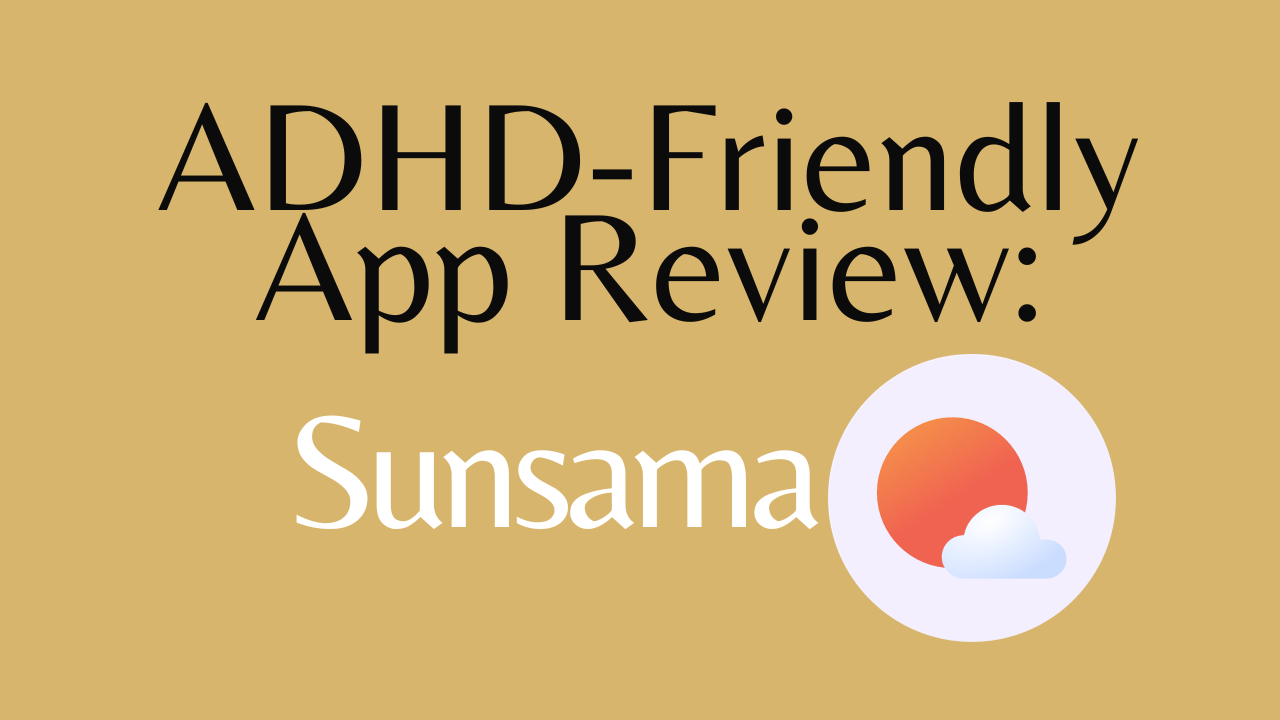I’m about to review Sunsama, and oh, how I love it. If you’d rather watch my review, go here. Listen to it below or on your favorite platform, or read on.
Note: Links in this article may provide me a commission. That said, I’ll never suggest anything that I don’t personally use and believe in.
What, exactly, is Sunsama?
Sunsama is a digital daily planner that’s been around since about 2018. According to their very own website, Sunsama aims to urge people to be more intentional about their workdays and their allocation of tasks, without leading to epic burnout.
Why is Sunsama great?
Oh boy. Where do I begin?
For one, Sunsama urges you each day to sit and plan your day, not in a haphazard way, but in a step-by-step process that it walks you through. At the end of this process, it even shows you how much times you’ve planned out for work, warns you if you’re getting a little too ambitious, and supports you moving some things to the next day, if you can. ADHD brains often need to hear that it’s OK not to get to everything at once, so this is huge.
You’re also able to plan out objectives for your week, and then align tasks with that objective as you assign them, so that you have a constant reminder of your ultimate goal for that time.
Sunsama’s UI is great, both simple and pretty, without a need for much setup at all. Everything can be easily categorized by channels and colors, so that you can see what you’ve got going on at all times. And not only does your time blocking echo whatever color-coding you’ve chosen, but so does the chart you get at the end of every day that sums up what you’ve dedicated most of your time and energy to that day.
Perhaps the most special thing about Sunsama is its focus on intentionality and being present. ADHDers tend to always want to be onto the next thing, and we often struggle to keep track of our actual progress throughout the day. Sunsama will not only have to reflect on the day before, but will also do something called a Sunsama Shutdown, where it will review your day, and then encourage you to write a few thoughts on how you think things went, which also helps us to feel a finality to the day, so that maybe we don’t keep working when we should be…I dunno….eating or sleeping. They also just added reminders to take breaks!
Also, if you work with a bunch of other apps, Sunsama integrates with quite a few, including ClickUp, Gmail, and Asana, so that as things come up, you can simply click and drag them over to your day, to make them part of your schedule.
How could Sunsama improve?
The weirdest thing to me, honestly, is that Sunsama doesn’t give you the ability to indicate the priority of your tasks. You would think that, with its otherwise pretty impeccable focus on thinking through where your energy goes, that there would be a way to decide what should come first, second, etc.
I do wish Sunsama allowed habit tracking; I think they’d knock that out of the park. But I get the overall feeling that, since the app is meant to help you balance work and life, that the personal measurements are kept to a minimum.
Also, Sunsama’s phone app is fine, but it isn’t as functional as the desktop-based app, with daily planning only in beta at the moment, and no focus mode. However, the devs did tell me they’re working on these things, so hopefully this will be a moot point soon enough.
In conclusion…
Sunsama is wonderful for ADHD brains. During my time testing it, I can honestly say I finished more of what I had planned than I have with the majority of other apps, and I ended each day feeling very satisfied. I never felt as if I was forgetting or missing anything, and I actually looked forward to planning my days and weeks. I think that, if you’re looking for something that’s going to help you feel less stressed and more in control of your work, this is going to be a great contender for that.
If you want to check out Sunsama for yourself and get a 14-day trial, do that here.
Details
Platforms: MacOS, Windows, iOS, Android
Cost: Free trial, then $20/month, or $16 a month if billed yearly (about $192)
BEST FOR: Business owners, working parents, people who spend lots of time at a desk
NOT GREAT FOR: Stay-at-home parents, students (unless you’re cool with the price tag), anyone who is regularly away from their desk

